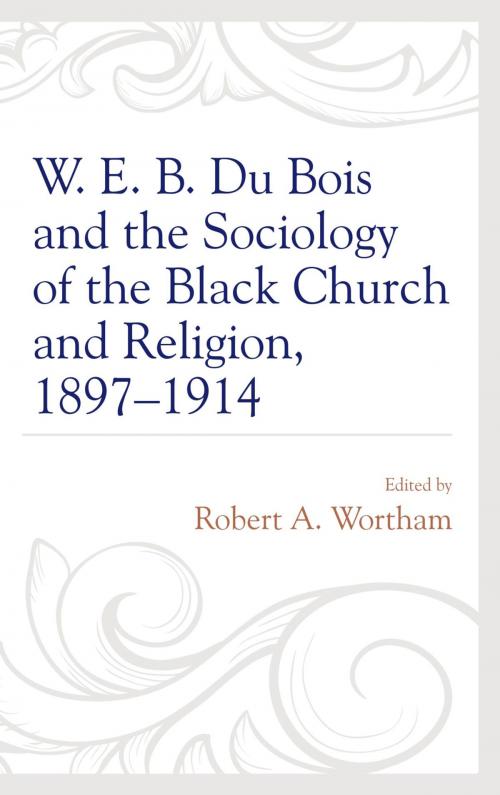W. E. B. Du Bois and the Sociology of the Black Church and Religion, 1897–1914
Nonfiction, Social & Cultural Studies, Social Science, Sociology, Marriage & Family, Religion & Spirituality, Christianity, Church, Church History, Fiction & Literature, Literary Theory & Criticism| Author: | ISBN: | 9781498530361 | |
| Publisher: | Lexington Books | Publication: | November 30, 2017 |
| Imprint: | Lexington Books | Language: | English |
| Author: | |
| ISBN: | 9781498530361 |
| Publisher: | Lexington Books |
| Publication: | November 30, 2017 |
| Imprint: | Lexington Books |
| Language: | English |
W. E. B. Du Bois is the founding figure of the sociological study of the Black Church. His discussion of the six functions of Philadelphia’s Black Church in The Philadelphia Negro (1899) represented an early example of a “functional analysis” of a religious group. In The Negro Church (1903), he integrated the findings from religious census data, denominational statistics, small area surveys, ethnographic fieldwork, and historical studies to paint a picture of the vibrant role the Black Church played in the African American community. Du Bois discusses the Black Church in three of the essays included in The Souls of Black Folk (1903), other sociological essays and several Atlanta University Conference annual reports. Additionally, Du Bois’ perspective on the Black Church and the role of religion in the African American community can be gleaned from various poetic works, prayers, and editorials. W.E.B. Du Bois and the Sociological Study of the Black Church and Religion, 1897–1914 showcases a representative sample of classic studies on the Black Church and religion by a pioneer of American sociology.
W. E. B. Du Bois is the founding figure of the sociological study of the Black Church. His discussion of the six functions of Philadelphia’s Black Church in The Philadelphia Negro (1899) represented an early example of a “functional analysis” of a religious group. In The Negro Church (1903), he integrated the findings from religious census data, denominational statistics, small area surveys, ethnographic fieldwork, and historical studies to paint a picture of the vibrant role the Black Church played in the African American community. Du Bois discusses the Black Church in three of the essays included in The Souls of Black Folk (1903), other sociological essays and several Atlanta University Conference annual reports. Additionally, Du Bois’ perspective on the Black Church and the role of religion in the African American community can be gleaned from various poetic works, prayers, and editorials. W.E.B. Du Bois and the Sociological Study of the Black Church and Religion, 1897–1914 showcases a representative sample of classic studies on the Black Church and religion by a pioneer of American sociology.















